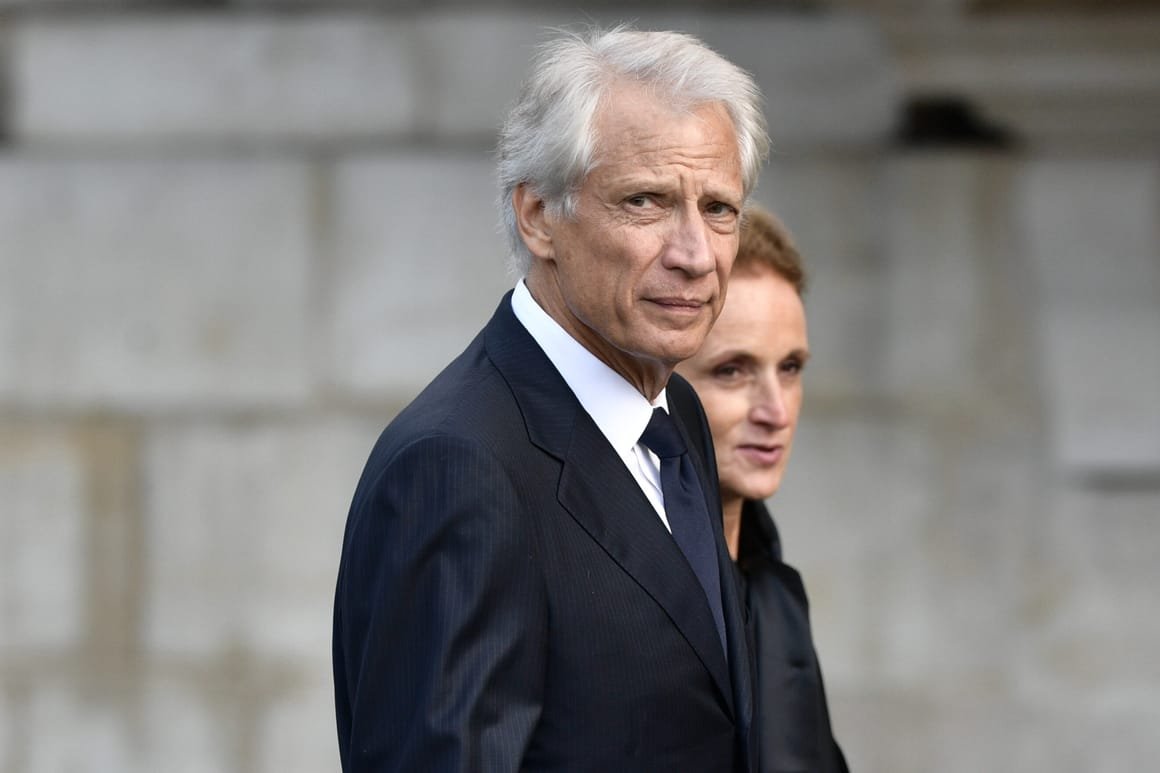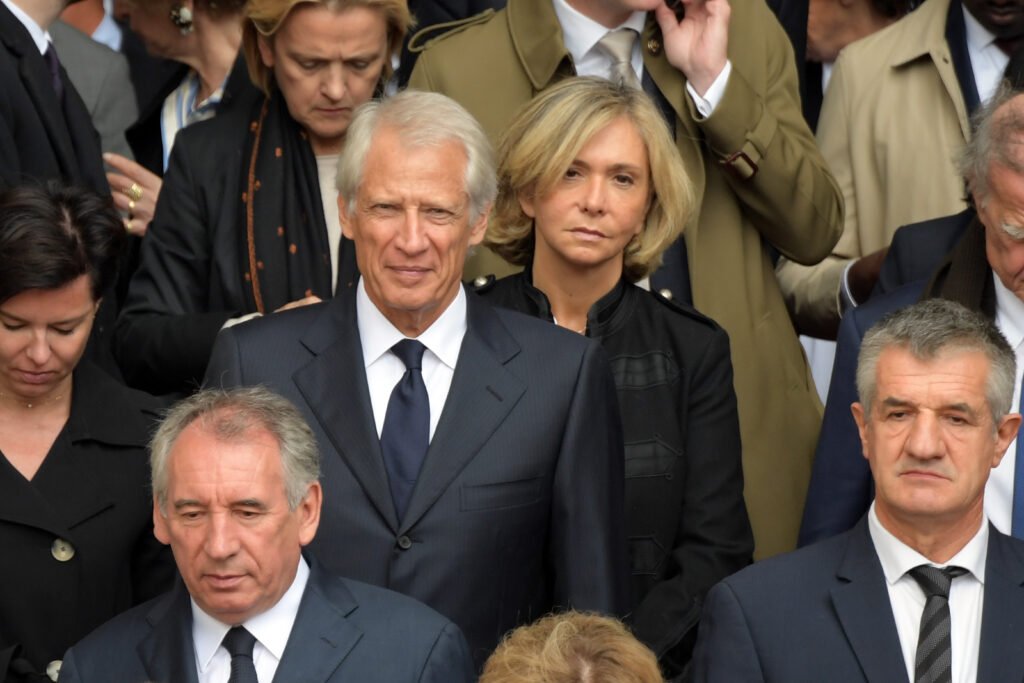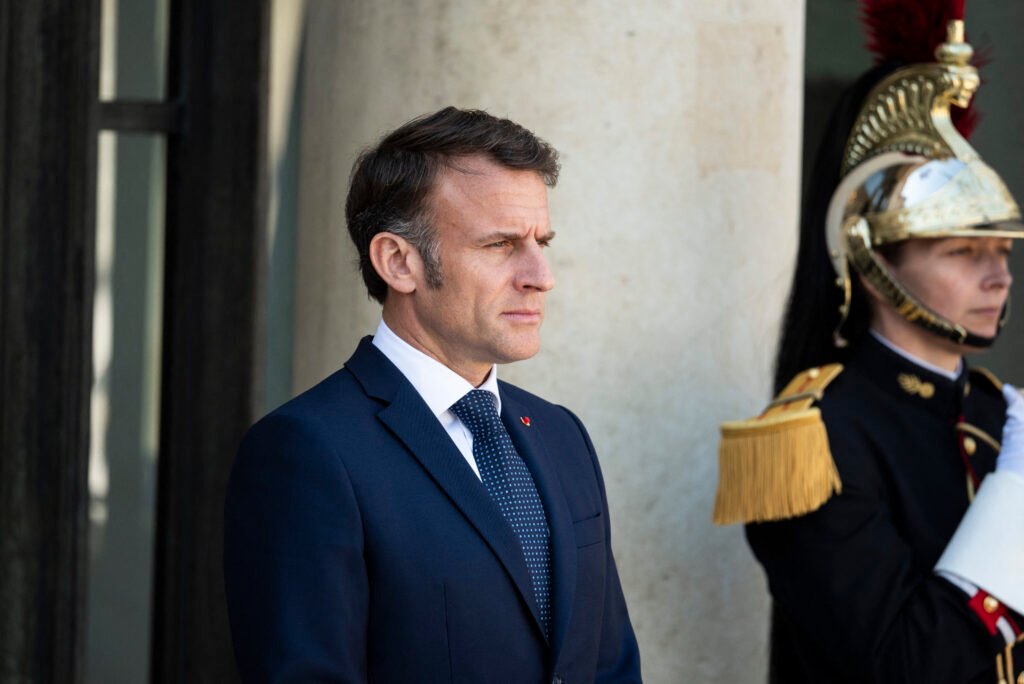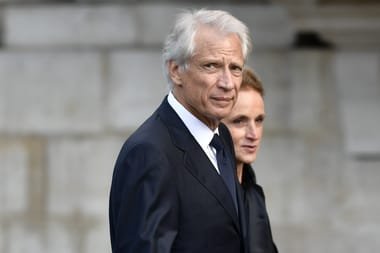Dominique de Villepin is enjoying unprecedented popularity, more than a decade after he was last in power.

PARIS — Dominique de Villepin hasn’t been in government in France for more than a decade. The crowning moment of his career — his impassioned speech at the U.N. against the U.S.’s pending invasion of Iraq — took place when France’s current foreign minister was just a teenager.
But the sophisticated, silver-haired bête noire of the Bush administration is enjoying an unexpected moment of fame. What began as a return to the spotlight by criticizing the scale of Israel’s retaliation to the Oct. 7, 2023 terrorist attack led by Hamas has morphed into a full-on media blitz with domestic and international press.
To what end, remains a mystery. The 71-year-old is said to be considering a run for president but has repeatedly ducked the question, including in an interview with POLITICO. He also vigorously denies his media campaign is designed to lobby for foreign powers, notably from the Middle East, or to raise the profile of his consulting firm, Villepin International.
“I want the French to understand what’s happening to them,” de Villepin told POLITICO when asked about his comeback. In the past few weeks de Villepin launched a newsletter, opened a fresh Instagram account and published an essay calling on the French population’s “spirit of resistance.”
“There is a battle to be waged. And you can see that there aren’t very many of us who can wage it,” he said.
De Villepin is clearly enjoying a moment he appears tailor-made for. Though he hails from the traditional center right of French politics, his support for the Palestinian cause has earned him new respect on the left. He was even praised by one of far-left firebrand Jean-Luc Mélenchon’s top lieutenants for his positions on Gaza.
Now, with President Donald Trump back in the White House, the fiery, eloquent tirades de Villepin leveled against George W. Bush and American “neoimperialism” are once again finding a receptive audience among a French public watching in disbelief at what’s happening in Washington and the Middle East.
“Everywhere I go and each time I speak, I can sense a resonance,” he said. “Unfortunately, today’s politics doesn’t meet it. I am not saying this is the Red Sea opening, but there is something.”
What Dominique would do
De Villepin’s unmistakable 6-foot-2-inch silhouette rarely goes unnoticed in Paris business and diplomatic circles. He was recently seen at a reception put on by shipping and media mogul Rodolphe Saadé, one of President Emmanuel Macron’s best-known allies in the country’s business elite.
De Villepin, whose family tree abounds with diplomats, politicians and military officers, spent most of his childhood in Venezuela, where his father worked at the time. As the epitome of France’s old-fashioned career diplomats, infused with Gaullist ideals and a love of French literature and history, he forged ties in many of the world’s power centers.
After his short-lived presidential run, he retired from politics and launched a successful career as a consultant. He still displays the same gravitas and lyrical talent that won him fame under center-right President Jacques Chirac, along with the strong opinions that made him a polarizing figure abroad.

And he still has no shortage of opinions on international affairs, especially how to fix the onslaught of crises facing France.
Speaking from a café a stone’s throw from the Invalides golden dome in central Paris, de Villepin says European leaders should not have been so quick to schedule meetings at the White House “imagining that we can appease Donald Trump’s anger and ire.”
“Some would like to think we can respond in a measured and reasonable way to somehow appease the Moloch,” he said, referring to the sacrifice-thirsty biblical deity.
De Villepin said Macron has not done enough to publicly explain how he will turn his lofty rhetoric into action.
“We have to be able to put a political and diplomatic proposal on the table that would be Europeans and Ukrainians’ roadmap … if this plan or this roadmap is too loose or not clear enough, not assertive enough, we are negotiating with our backs to the wall,” de Villepin said.
De Villepin did agree with Macron’s current push to move forward, along with like-minded partners, outside of the structures of the European Union to deal with urgent issues such as joint borrowing to fund increased defense spending.

Countries with high debt and overstretched budgets, such as France, Spain and Italy, have long advocated common borrowing as the only way to significantly increase defense spending, but the idea is politically toxic for more fiscally conservative countries in Northern Europe.
Can he win?
The former prime minister’s last foray into politics dates back to a failed presidential bid in 2012. Yet despite not being actively engaged in politics, or perhaps because of it, de Villepin recently topped a respected pollster’s ranking of French politicians, coming in ahead of presidential hopefuls such as center-right heavyweight Edouard Philippe.
However, as that same survey shows, translating that popularity into votes is likely a long shot. If de Villepin were to mount a run, he would find the political space he could hope to build on has significantly shrunk. His former party, Les Républicains, is a shell of its former self after bleeding membership to President Emmanuel Macron’s centrist movement and the surging far-right National Rally.
Arguably the most popular figure in Les Républicains is Bruno Retailleau, the interior minister known for his hardline stance on immigration. Retailleau is mounting a bid to lead Les Républicains and is rumored to have his eye on the presidency in 2027.
For now, a presidential run likely remains a pipe dream. In a poll published Sunday, the former prime minister is credited with between 2.5 percent and 5 percent of voting intentions in the 2027 presidential election’s first round.
But if de Villepin truly believes he is the man for this moment, bad poll numbers probably won’t stop him from mounting a bid for the Elys´ée to combat what he calls the “neoimperialist offensive” against the French.
“I don’t think that today, even among some of the Republic’s top officials, we have fully grasped what is at stake,” he said.




